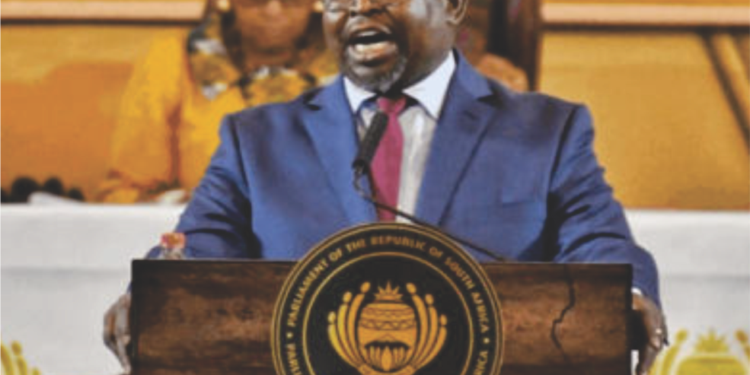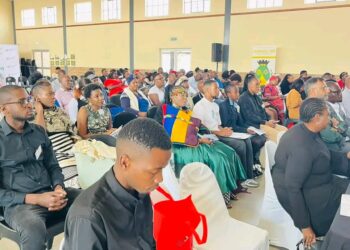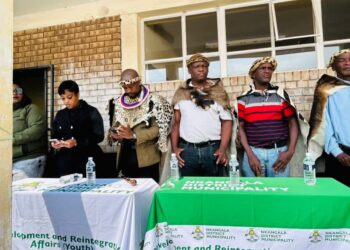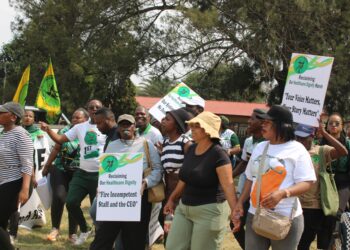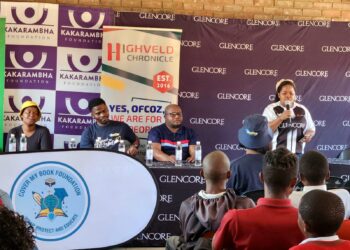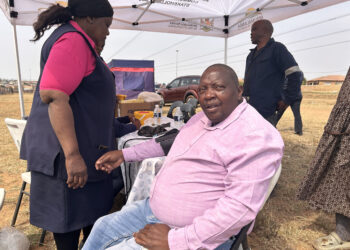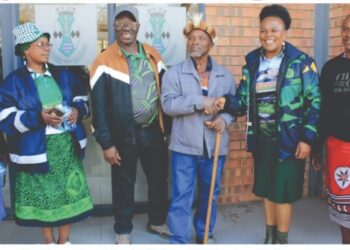SOUTH AFRICA – The delayed budget speech is a harsh reminder to the ANC that they no longer have the power to make decisions affecting millions of South Africans on their own.
The party’s performance during last year’s general elections plummeted to a shameful 40.2 percent, losing its majority share in the national assembly, forcing it to form a government of national unity (GNU) with other nine parties, including the DA, IFP, UDM, and PAC, to name a few.
ANC member Finance Minister Enoch Godongwana was scheduled to table the 2025 Budget Speech in Parliament on Wednesday, February 19, 2025, outlining all the financial, economic, and social commitments the government will prioritise in its planned expenditure.
The budget was also expected to provide a detailed plan for 2025 spending, including proposals for revenue collection to help fund the government’s planned interventions and commitments as part of the GNU government.
However, in an unprecedented move, the budget was postponed for what the government called further deliberation.
“The budget requires the deliberation of the cabinet before it is tabled in the national assembly,” Godongwana said in a media briefing on Wednesday afternoon.
Godongwana also said that cabinet considered that although the tabling of the 2025 budget was scheduled for release at 2 pm on February 19, 2025, a postponement was needed to allow for further deliberations to take place on the budget. “Cabinet is united in the view that the budget must strike a balance between the interests of the public, economic growth, and fiscal sustainability,” he said.
The minister further said that further discussions in cabinet would take place in preparation for a new amended budget to be tabled on March 12, 2025.
It, however, appeared that the GNU partners were not pleased with Minister Godongwana’s proposed 2% value-added tax (VAT) increase, hence the postponement.
The DA, on the other hand, claimed victory on the postponement of the budget speech, saying it prevented the implementation of a 2% VAT increase that would have crippled the country’s economy. “The postponement resulted from the DA’s resolute opposition to the ANC’s plan to hike VAT at a time when millions of South Africans are already suffering under a cost-of-living crisis,” said leader John Steenhuisen.
The IFP also expressed its disapproval. “As a party committed to responsible governance and economic justice, the IFP does not support a proposed 2% increase in VAT,” it said in a statement. “This position was strongly conveyed in Cabinet today. We firmly believe that increasing VAT would disproportionately impact ordinary citizens, particularly the poor and working-class households, by making essential goods and services more expensive.”
The UDM expressed that it was not part of discussions to decide on the postponement. “We cannot support a decision that we know nothing about,” said party deputy president Nqabayomzi Kwankwa. “Secondly, we should not treat a proposal from the executive in the nature of a budget as fait accompli. It is only final after parliament has approved it.”
Leader of the Patriotic Alliance (PA), Gayton McKenzie, burst the DA’s bubble, saying it was not them alone who fought against the 2% increase in the VAT rate. “For the DA to then flood the world with triumphal messages of how it had saved the day by single-handedly fighting the VAT hike was not only in poor taste, it was childish and a sign of the desperation they must be feeling to seem relevant,” he said. Sitting on the opposition bench, the Economic Freedom Fighters (EFF) and Umkhonto weSizwe (MK) strongly opposed the VAT hike. It has since been reported that others within the ANC are not in agreement with proposed move.
Hearing from the grapevine, Minister Godongwana’s 2% tax proposal would enable the government to:
• Fund public sector wage increases for civil servants
• Expand early childhood development opportunities for children
• Retain the teachers, doctors, and essential frontline workers that serve our communities
• Revitalise the commuter rail system to better serve working-class families
• Provide above-inflation increases to social grants for the most vulnerable
The proposed increase would have raised tax to 17%, and to “protect vulnerable households,” Godongwana would also have announced the following steps:
• Expanding the basket of VAT zero-rated food items to include tinned vegetables, dairy liquid blends, and a variety of meat products from sheep, poultry, goat, and swine
• Extending fuel levy relief for another year, saving consumers around R4 billion
• Providing social grant increases that are significantly above inflation
• And adjusting personal income tax brackets to protect lower-income earners











